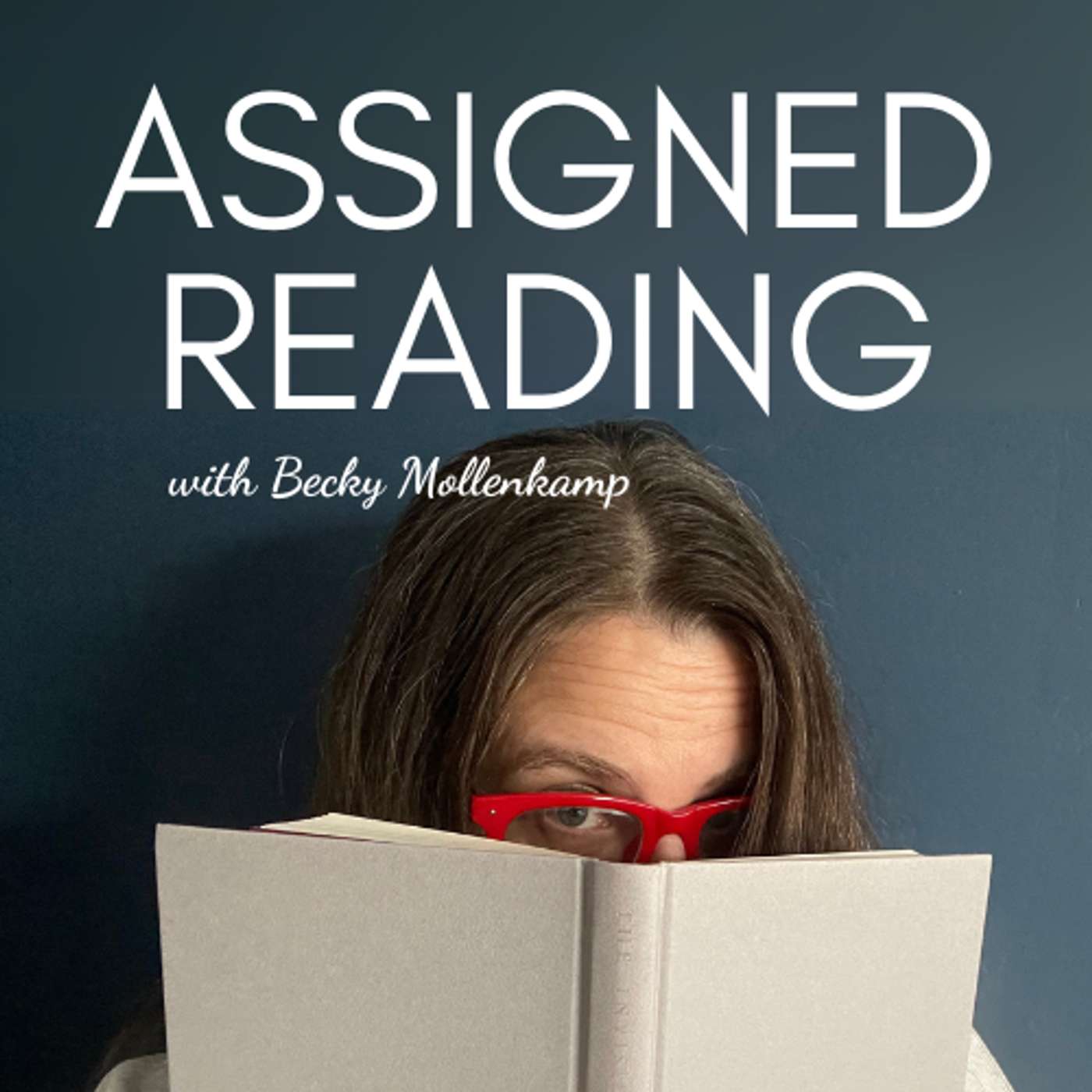
Mindset Unlimited: Tips, Tools, and Inspiration for Women in a Time of Change
Your Mindset Unlimited is a podcast for women navigating professional and life transitions who are seeking to release learned limitations and build a more holistic, liberatory version of success.
Your Host, Valerie Friedlander, is an ICF certified coach, sociologist, intersectional feminist, artist, business owner, and mom. Based in Chicago and supporting clients world-wide, she helps high-achieving women transition into their next chapter of life with clarity, confidence, and self-compassion. lead with intention, and create their definition of success that honors all aspects of their life.
In this podcast you'll find tips, tools, and inspiration to help you release the internalized limitations cultivated by our social system imbalances and lead your life with more ease and joy.
Some of the topics you'll find here are: finding fulfillment, habit shifting, motivation, time management, money mindset, stress management, impostor syndrome, productivity, work/life balance, communication, boundaries, leadership, social activism, burnout, building a business, motherhood, and more.
You can find out about Valerie and her work at www.valeriefriedlander.com
Follow her on most social media @unlimitedcoachval
Sign up for her email list at www.valeriefriedlander.com/signup
Books referenced on the podcast can be found on Bookshop.org
https://bookshop.org/lists/unlimited-podcast-book-recommendations
Mindset Unlimited: Tips, Tools, and Inspiration for Women in a Time of Change
3 Things You Need to Create Stability in Times of Uncertainty
Three things you need to create stability in times of uncertainty are to know yourself, to stay curious, and to build community. We are in a massive period of change and that comes with a great deal of uncertainty. Uncertainty naturally triggers feelings of overwhelm, which make it hard to take action. This is NOT an individual failing. Much of what feeds this instability is systemic, not individual. With that in mind, I invite you to remember that you are part of the system and you DO have power. In order to engage that power and help build a healthier foundation, you need to start with building your own foundation. This will give you the stability to do something different, which is the only way we can begin to create something different.
In this episode of Unlimited, I explore the three ways you create stability in times of uncertainty.
Some of what I talk about in this episode includes:
- Shifting out of overwhelm
- Establishing a foundation of self-connection
- Fear of failure and binary thinking
- Cultivating a curious mindset
- The necessity of community
Thank you for listening!
If you enjoyed this episode, please share it! Take a screenshot of the episode to post in your stories and tag me: @unlimitedcoachval
Want to share your thoughts or have questions? Send me a message! I love to hear from you. You can email me at valerie@valeriefriedlander.com or DM me on Instagram
AND don’t forget to subscribe, rate, and review the podcast!
EPISODES REFERENCED IN THIS EPISODE:
Can I Make Plans Yet
Reflections and A Way Forward
Getting Comfortable in The Uncomfortable
Relearning Self-Love
Clarifying What You Want
Values Aligned Leadership
How to Stop Reacting and Start Responding
Shift From Drained to Motivated
Understanding Your Stress Language
You’re More Than Your Personality Test
To Emotional Awareness and Beyond
Setting Healthy Boundaries
How to Say No Without Guilt
How to Prioritize Your Needs
CONNECT WITH VALERIE:
Website
Instagram
Facebook
Get email updates!
Hello, my friends, and welcome to another episode of Unlimited. Today we are talking about creating stability in times of uncertainty, and we are certainly going through some uncertainty, and that is only going to increase as we continue to see the effects of the way that we've been in the world. I'm bringing this forward because, while this isn't individual, this is societal. There is power that you have to engage it. Yet So many of the factors around us keep us feeling frozen because naturally, we feel like something bigger than us, that bigger than us as individuals, things that we don't have direct power over. We feel this sense of overwhelm from them, so it naturally triggers that survival mode, that freeze response, where we don't take action and we don't do anything or we do what's familiar to us. I want to let you know that this is normal. This is not about blaming, shaming or guilting yourself. This is about acknowledging and caring for yourself and giving yourself space to create a foundation that is supportive, because in times of uncertainty, we often feel like we're the ones being tossed around by the waves of the world. When we can create a foundation that provides us a sense of stability, then we can engage those waves, then we can make an impact. We can make our own waves because we have ownership over what is ours. So some of the things that we're going to talk about are three things that will help you create that foundation of stability in your own life so that you can show up to the world, to your community, to your life with a greater sense of confidence and courage. The first thing we'll talk about is knowing yourself, and what does that mean and what does that look like? staying curious, which is kind of like the mindset piece so that you can continue to engage in an aligned way. And then building community, because none of this is something that we are meant to do alone. We are meant to be a community, and so what does it look like to create a different foundation than what we may have been taught to have?
I have talked a bit about this kind of thing before, because I started this podcast toward the beginning of the pandemic, so a lot of my episodes right at the end of 2020 and the beginning of 2021 are very much focused on those ideas of okay, now what? How do I move forward when I feel frozen and when the world is very frozen by the things that are happening? If you want to dig further, i will have links in the show notes to some of the episodes, such as episode seven Can I Make Plans Yet? Episode nine Reflections and a Way Forward. Episode ten Getting Comfortable in the Uncomfortable. I will also, throughout this episode, have a number of links to other episodes that can help you go further with some of these foundational pieces that I'm talking about. And finally, i do want to encourage you, if you are struggling with any of these things, if you want support to get unstuck because we are not meant to do this alone reach out. I'm here for you. I have tools and resources and I will help you gain awareness to keep moving forward. So if you are looking for support with any of this, please don't hesitate to reach out Now, without further ado. Let's get started.
Hey there, I'm Valerie Friedlander, certified Life Business Alignment Coach, and this is Unlimited.
This podcast bridges the individual and the societal, scientific and spiritual, positive and negative, nerdy and no, there's just a lot of nerdy. Come on board and let's unlock a life that's as badass as you are.
As I alluded to in the intro, there are two things that our brain does when we feel this sense of overwhelm, when something feels bigger than us, because bigger than us naturally equates to danger. There's this sense that if it's bigger than you, it could be dangerous. So it doesn't actually have to be dangerous, it's just that it could be. It makes our brain focus on it or on engaging it, and engagement doesn't necessarily look like doing something about it. Oftentimes, for the majority of people, it will look like avoiding it, trying to get away from it. Right, the flight responses that were Even just through distraction, finding things that are not about it, so that you are not looking at what feels dangerous and what is going on. So we're gonna do something else. And what does our brain incline us to do Is the second piece, and that is usually what is familiar. Because what is familiar, what is known, is what feels safe. So if we feel threatened, we wanna go to what feels safe. What feels safe is what is known, because we know how to navigate it, even if it's not actually safe, even if it's not actually helpful or supportive, it's what is known. So, again, known, then equals safe, because we know it.
Unfortunately, with the kind of danger, is it where we are currently facing in the world, these things that are so much bigger than us. We are set up for a vicious cycle. It's the cycle that is exactly creating the crises that we're in, these existential crises of climate change and the rise of authoritarianism and inflation. And, of course, we're hearing like the potentially looming economic recession. All these things that are happening that are impacting us in various ways If you'd noticed my voice a little rough, i'm fairly certain is because of the air quality from the wildfires, and so avoidance then also keeps us feeling powerless to do something different. Yet doing something different is the only way we can create something different.
One way that our society avoids the uncertainty of change because change is not familiar, it's uncertain, we don't know exactly what it will look like And it is by infusing us with this idea that our hardships are due to individual failings. So that creates yet another overwhelm, because it's like oh, this is bigger than me and you know it, you can feel it, this is not in my power. And yet we are told that what we are struggling with as individuals is about us as individuals. It is about who we are, it's about the way we are, whatever. It's over individualized. So while we're talking about things you can do as an individual, it is so important that we also remember systemic problems do require systemic solutions. So no, this isn't an individual deficiency, this isn't your fault. It's not about blaming, shaming or guilting. This is about acknowledging what is and what's going on, so that you can then make choices that help you move forward in an aligned way and build into change, build into solutions.
The more we can show up in reflection of what we want rather than in a reflection of what currently is, we can reflect into the world what we want to create, the more we're creating ripples into this space. We are part of the system. We are not the system. We cannot solve the system by ourselves, but we can ripple into it. So no, this isn't about something wrong with you. What you're experiencing, your emotions, your reactions, all of that is totally normal and you do have power. So if we can shift into what is the opportunity in this space, it's reflection and it's making choices, and the more consciously we can make choices, the more power we have.
So creating stability in a time of uncertainty requires reimagining our foundation. A lot of times we feel like our foundation. It's kind of like the earth is shaking. So when this time of uncertainty, everything is shaking and it feels like we're just getting thrown off course. But what if it were water and we built a surfboard? What if we had these waves of things happening that have been impacted by all of our surfboards? But if we had a surfboard where we had more choice in where we were moving, how we were paddling, how we were moving forward, then we have more power in our own lives and that can have an impact in other spaces too.
So the first piece that we'll talk about is knowing yourself, giving yourself space to check in and really know yourself. So much of our conditionings around not knowing ourselves, not being connected to ourselves, even disconnecting from ourselves to survive in the world, and there's a lot to that. But I invite you, with all of this feeling, especially when you're feeling that uncertainty, when you're feeling that stuckness, when you're feeling that overwhelm, to check in with what the message is, what's going on, what feels bigger than you, what is true for you, what is important to you. So, looking at your values, looking at what are those things that matter, what's your code of ethics If you have some sort of moral code or ethical basis to tie into, that can help create a good foundation for how you show up.
Now I want to acknowledge that it can be really hard to take space to do this, to really check in, because taking space means taking up space. So a big part of knowing yourself is also acknowledging your value, knowing that you are valuable not in just what you produce in the world, but that you yourself are valuable. You are worthy of the space to listen to yourself, to hear yourself, to know what it is that you want, to identify your values, to know who you are and what's true for you, so that, even if you wouldn't necessarily make a choice that's aligned with that yet maybe it's not safe for you to do that yet, maybe it's not available that you can start making choices that align with that, that move you toward that. But taking up space by saying, oh, i'm going to take space for this, for me, for reflection, one of the things that creates a lot of resistance to even doing that much is that sense that we're not valuable. So that is a very important starting point to give yourself. So one of the episodes that I did that might be helpful for you to fit in maybe listen in a commute or something like that is relearning self-love as well as clarifying what you want. Once you get to that point where, okay, i can take space, i'm allowed to have a little bit more space. Checking into values, aligned leadership, how to stop reacting and start responding and shift from drained to motivated, can help you with some questions, some engagements around identifying your values and what's important to you, and that code of ethics, something to help ground you in you.
Another piece of awareness is understanding your triggers. What creates that sense of overwhelm? So really looking at that, noticing that, what is it that sends you into survival mode? Now, if you are primarily functioning in survival mode, it's very hard to tell because everything is a trigger, it's all part of everything. So it's okay if you're not really sure. This is where giving yourself space comes in space to notice and acknowledge oh, i'm feeling like this, this is what's going on.
One of the pieces of resistance here is shame. There can be a lot of shame around having feelings. Most of us have experienced a certain amount of conditioning around not giving our feelings space and not valuing them as important pieces of our experience. So giving yourself space to notice your feelings and not shame yourself about having them is hard. So whatever creates that space for you maybe it's a trusted person, maybe it's a private journal, maybe it's just in your head going up. I see you, i'm going to name it and now I'm going to move on. That's okay whatever works for you. But starting to notice what's going on emotionally, i have some tools around that that you may find helpful to dig in. I have a quiz around your stress response and understanding your stress language. There's also a podcast episode on that And then the episodes your more than your personality test and to emotional awareness and beyond can be really helpful in engaging some of those pieces.
And finally, within this knowing-yourself piece, what you need to honor your needs, what will help you create the spaces to care for yourself. So, what are those boundaries? I think of our experience and ourselves as this container, and sometimes the sides of our container are not very present and so we're kind of pulled everywhere and just all over the place. So to create a surfboard to go back to that analogy we need to create boundaries, we need to create a container, we need to kind of smooth our surfboard container, as it were. I don't know That's not working very well, but whatever. You know what I'm saying, i hope. But to create those boundaries so setting healthy boundaries, how to say no without guilt, how to prioritize your needs, are all episodes that you might turn to if that's an area that you want additional support in.
But knowing what allows you to show up the way that you want to show up, what supports you in that process of being present the way you want to be present, and sometimes it's not being present, sometimes it's leaving a situation giving yourself that support so that you can come back and engage it Or say you know what? this is not for me. So there's a lot of stuff in here And again, it's not easy, because so much of our conditioning is to rely on other people to put our emotional okayness on what's happening around us. So a lot of this re creating a foundation for ourselves is building into knowing ourselves and who we are as individuals, which feels a little funny because I am again going to repeat that so many of these things that are overwhelming our systemic issues, not individual issues, and yet the only way we can truly show up to them is when we have a sense of self. The only way we can connect to other people in a healthy way to create change is when we can heal and know ourselves And what we bring to the table, what we can show up with, what our gifts are, what our strengths are, what our knowledge is and also what isn't ours, so that we're not taking on things that aren't our responsibility. So knowing yourself is also a big piece of knowing what is yours and what isn't yours.
The next part is staying curious. Curiosity and judgment can't exist in the same space, and when I say judgment, it's not about having good or bad judgment, it's about judgmentalness, which is often limiting and rooted in learned shaming Like this is wrong, this is bad. You can notice judgment coming into play when you have binaries. So any place where you notice yourself in a binary, this is right, this is wrong, this is good, this is bad, it's either this or that. Binary thinking is usually an indication that there is a certain amount of judgment, judgmentalness going on.
Now I do want to make a note here. This is different, and what we're not talking about is when someone is experiencing harm or harm is being done, because that is a time when we often need that judgment, that limitation of options, because that protects us in those instances. So this is more if we're talking about boundaries, so go to that boundaries episodes. What we're talking about right now is the ability to think in a creative way so that we can come up with creative solutions, and that can apply in terms of okay, what do we do with this? But I really want to be clear that what I'm saying is not that it is a bad thing Whenever the binary comes in again. It's not a bad thing When we get into that judgmentalness. It just is an indication that our options have been limited And sometimes that's necessary. Now that can also block a more robust discernment process, and that's because our judgmentalness can limit our ability to discern, because it limits our sense of options and the things that we feel like we have access to and our ability to make decisions. So when we can stay curious and ask questions, then we can access more options, more ways that we could engage, and oftentimes judgment will show up like fear of screwing up.
So this is another place where, like, fear of failure can come into play. Fear of failure can look like I don't want to make the wrong decision, or it can look like I want to make the best decision, because that perfectionism is another side of that fear of failure. Oh, i want to make sure it's perfect, so that I'm not dealing with any fallout or repercussions that I couldn't foresee, that are harmful or hurtful. So if you can shift out of that, i want to make the best choice. Or I want to make sure I don't screw up or that sort of thinking and insert more of a risk assessment in that space. Okay, well, what am I afraid of? Let's actually look at it. What could happen? What's the best that could happen, what's the worst that could happen, what's most likely to happen, and engage it with a more expanded sense versus a what could go right or it could go wrong. Right, because then we're in binary again.
So, creating the options, the possibilities, what would help me take action? What is most important to me in this situation? What do I need to feel safe doing this thing that I want to do? What would give me some support here? So, what questions are a lot of times, the questions that I would encourage.
Asking How can create overwhelm and why can inspire judgment? So how? well, i don't know, is a natural response to how and why often feels like why are you doing that? Like, right, there's this judgment kind of infused, even if you don't mean it that way. Oftentimes it comes off that way, whether you're saying it to somebody else or you're saying it to yourself Why did you do that? Right, like instead of why did you do that? It's well, what did I learn? What did I get from that? What happened there? It helps you think more creatively because you're utilizing curiosity instead of judgment. Hopefully, those give you some examples of how to utilize that curious thinking to be able to find more creative solutions, because even if there is something external that's impacting you, if you're asking what questions and if you're getting curious about I want to do this, but I don't know if we're going to go into a recession. What do I need to know? What do I need to do? What would create more support? What would allow this to happen? Who do I need to talk to? What information am I missing? So you see what I mean, like asking these questions to kind of draw out solutions.
And then the other piece, the final piece, is building community, and you really do need to have that knowledge of yourself, at least to a certain extent, to build in community. But I will also say that building community is part of how you know yourself. We understand ourselves in relation with other people So you learn about yourself through community. We need other people bottom line And of course this also doesn't mean groups of people that you hang out with all the time. So I'm not just talking about friends that you hang out with or a group of people or a clique on friends or any of those other. Shows that kind of have this click of friends who talk about all the things and kind of reinforce societal norms or not. Yeah, anyway, it doesn't require being an extrovert is essentially what I'm trying to say to you. You can be an introvert and have community. So when I say community, i mean people that you lean on for support and that can lean on you, and maybe that is tangible support, maybe it's emotional support, people whose gifts, skills, knowledge and capacity complement your own.
Now, part of the importance of knowing yourself and creating that foundation of what's important to you is part of what can also help with another key ingredient in community, and that is a willingness to be vulnerable. When you know yourself, when you know your value, when you are tapped in at least to a certain extent in your value enough to give yourself space. And that also means that you can give yourself the space to ask for help, not just give help, because it's really easy to fall into that like I'm going to be okay if I help, you be okay, and then I have to be the strong one, and then it's not really a community. Community involves a willingness to be vulnerable, and especially in a society that lads that self-sufficiency, that lone wolfness, and over individualizes all of our issues. Being vulnerable means acknowledging that, yeah, we all struggle, we're human and it's okay, and so I can struggle and still be valuable. I can struggle and be worthy of care, as can you.
It can be hard to find those spaces because, again, that society upholding over individualism, it's hard to find those spaces. So it may mean creating that space, and that may be something that comes forward as you look to yourself. What's important, what you need to show up, the way that you want to show up. It may be oh, i need to create that space because I can't find it somewhere. So what does that look like? Where can you find those people? What does it look like to reach out, to create a safe or brave space for that kind of connection within your community, and it may mean changing your community. All of these things are not easy things, and so I don't want to say them in a way that makes it sound like it's light and floofy or whatever. I want to acknowledge that it is challenging to do this. So, finding that community or even a person to support you, taking those action pieces of giving yourself space to know yourself, helping you stay in that curious mindset so that you can navigate in a more creative way the things that we are dealing with in this world, helping you start a community to begin to put together that space So much of what I talk about in this podcast is designed to help you do these things.
So explore. If you haven't listened to some of these episodes, go and explore them. This season was all about kind of walking you through each piece of that, knowing yourself and creating a plan and setting boundaries and supporting yourself emotionally. So that's what I'm here for. If you want more personalized support, i encourage you to reach out to me. I'm here for you. This is what I'm doing in the world. I have a lot of spaces where I'm building into community as well in my kid's school, in my religious community, in my neighborhood. We all need this, and this is what creates that snowball that turns into an avalanche where we do create and can engage the things that are bigger than us by being bigger in community.
So, if I can be of support to you, if you're interested in talking, please don't hesitate to reach out. Go listen to those episodes If that feels supportive for you. Go check out some of the resources I have on my resource page and I will talk to you all next time. Thanks for listening. I so appreciate you being here. If you got something out of today's episode, please share it. Leave me a review, take a screenshot and post it on social with a shout out to me, send it to a friend or you know all of the above. Want to hang out more? Join me on Instagram Or, better yet, get on my mailing list to make sure you don't miss out on anything. And remember your possibilities are as unlimited as you are. Allow yourself to shine, my friend. The world needs your light. See you next time.
Transcribed by https://podium.page
Podcasts we love
Check out these other fine podcasts recommended by us, not an algorithm.

Feminist Founders: Building Profitable People-First Businesses
Becky Mollenkamp
Women Making Moves
Amy Pons
Queer News
E3 Radio
Nonprofit Mission: Impact
Carol Hamilton
Small But Mighty Agency: How to Grow Your Agency
Audrey Joy Kwan | Growth Strategist for Agencies
Disrupt Your Money
Meg K. Wheeler
Small Business Casual
Emily Aborn
Not Too Productive
Becca Rich
Messy Liberation: Feminist Conversations about Politics and Pop Culture
Becky Mollenkamp and Taina Brown
Empowered & Embodied Show
Kim Romain & Louise Neil
The Air We Breathe: Finding Well-Being That Works for You
Heather Sayers Lehman, MS, NBC-HWC, NASM-CPT, CSCS, CIEC, CWP
Careers at the End of the World: Reimagining Ambition, Work, and Your Job Search in Unprecedented Times
Jenn Walker Wall | Work Wonders Careers
The Passionistas Project Podcast
Pop Culture Passionistas
Humaning: The Shit We Need to Talk About
Steff Gallante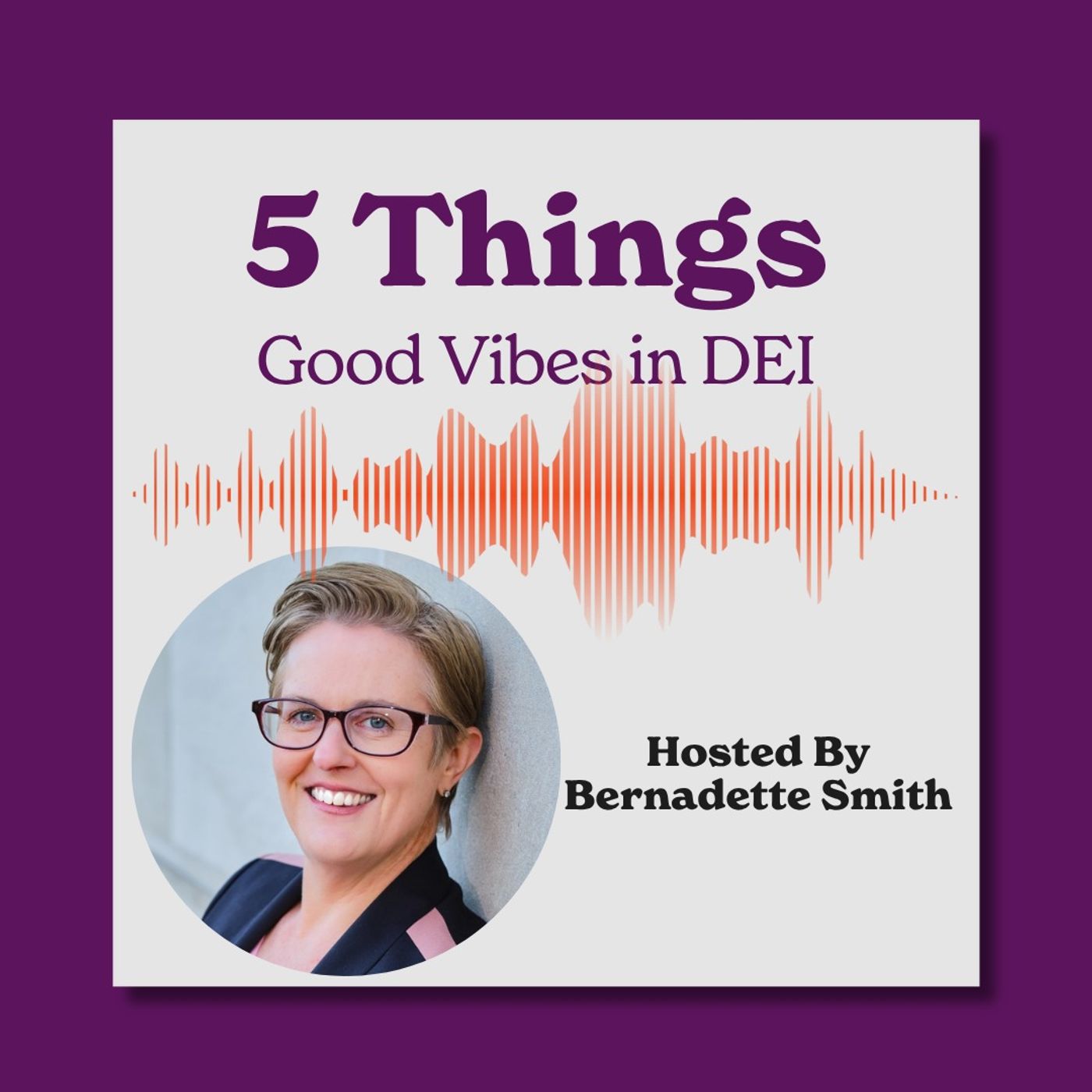
5 Things: Good Vibes in DEI
Bernadette Smith
The Art Of Imperfect Adulting
Amy Stone
Business as UNusual
BiCurean Consulting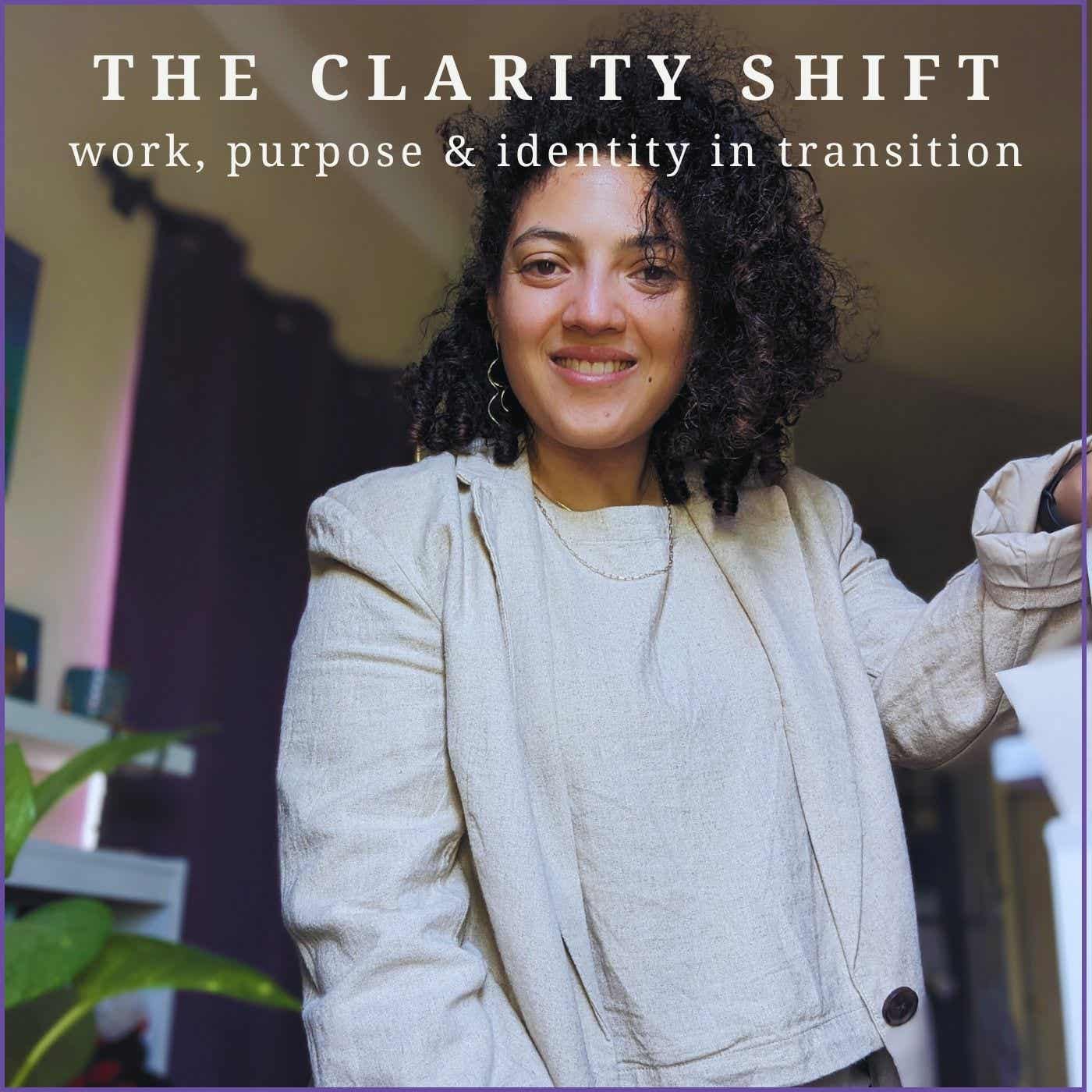
The Clarity Shift
Miriam Raquel Sands | Clarity Coach
Cozy Conversations with The Sister Project
Lauren Massarella and Michelle Anderson
Departure Menopause: Neurodivergent-Affirming & Weight-Inclusive Care
Melinda Staehling
The Empress and The Fool
Sarah Dittmore & Kaitlyn Gulock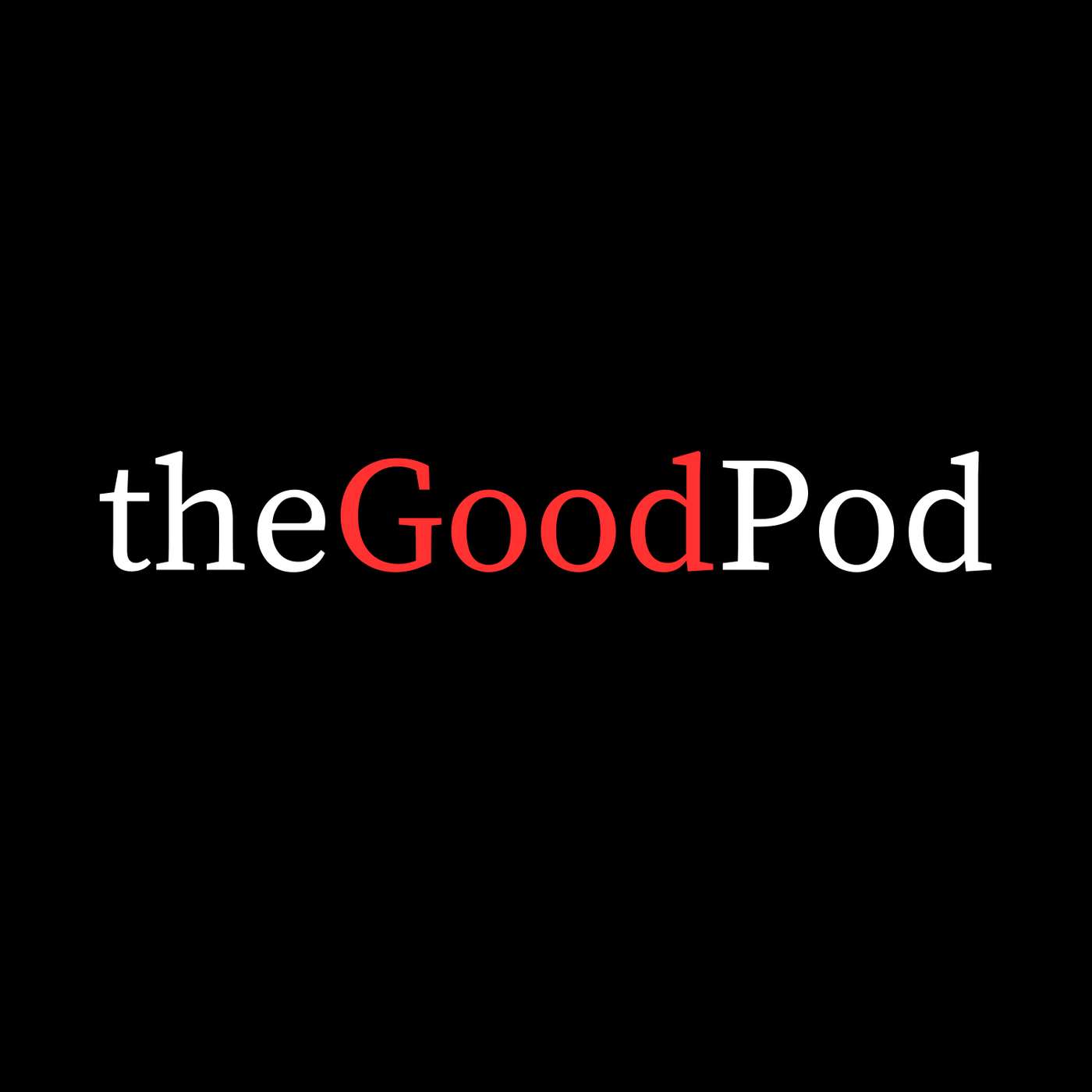
The Good Pod
Jason Reed and Marissa Garza
Gratitude Geek
Kandas Rodarte | Gen X Growth Coach for Women Solopreneurs
Mental Health Warrior & Neurodivergent Advocate
Amy D. Taylor | Mental Health Warrior & Neurodivergent Advocate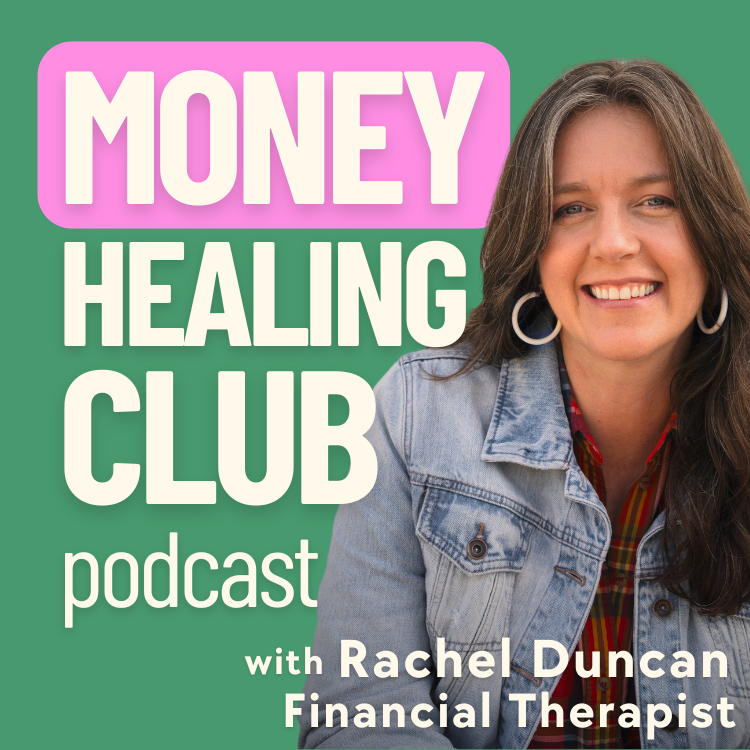
Money Healing Club Podcast
Rachel Duncan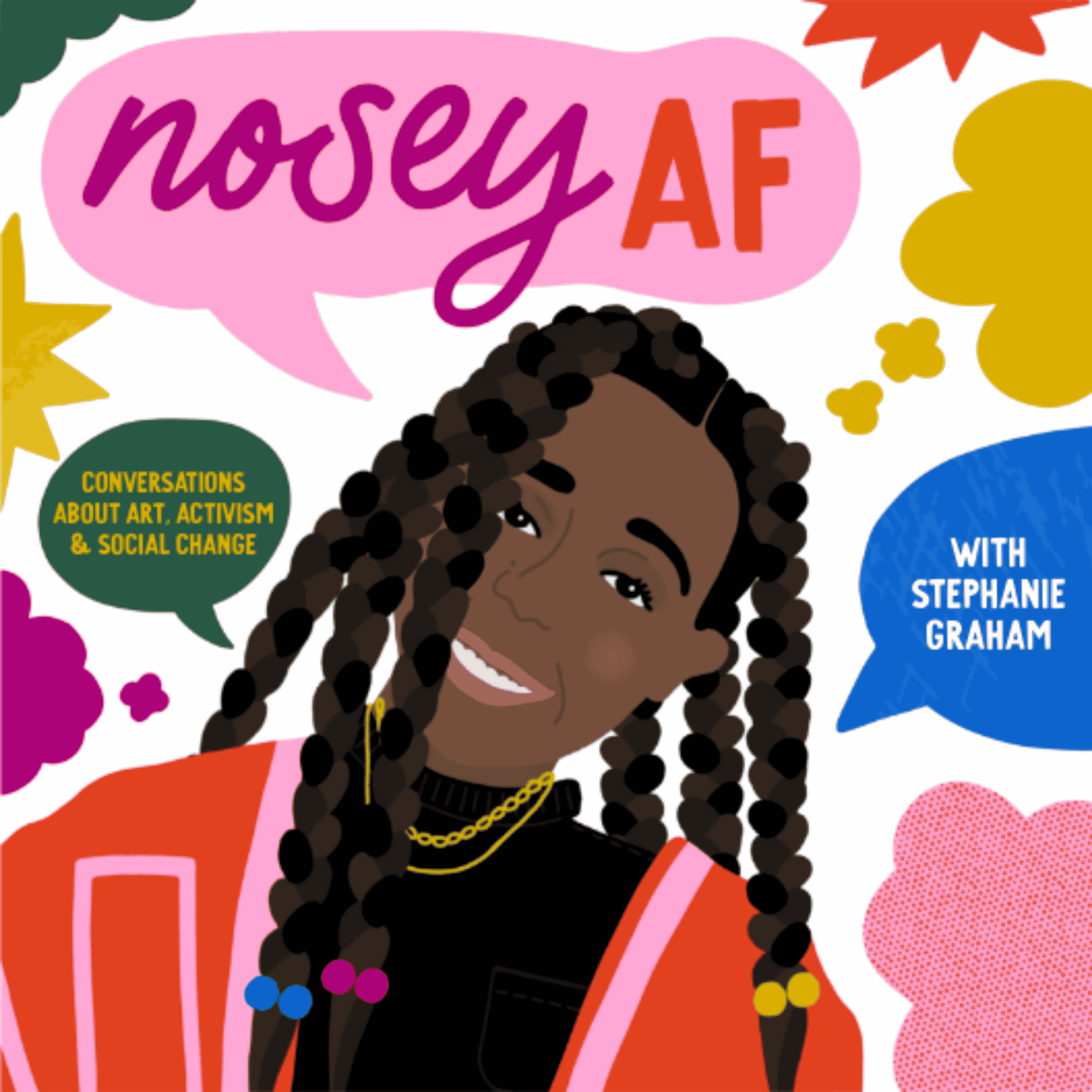
noseyAF: Conversations about Art, Activism, and Social Change
Stephanie Graham
The RestLab with Jordan Maney
Jordan A. Maney
Was It Chance?
Alan Seales, Heather Vickery & Broadway Podcast Network
White Homework
Tori Williams Douglass, Benjamin Faye
Work Less Play More Podcast
Lindsay Johnson, The Radical Connector



